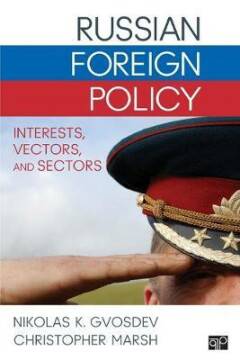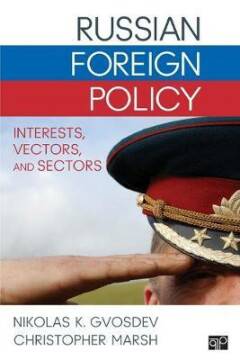
- Afhalen na 1 uur in een winkel met voorraad
- Gratis thuislevering in België vanaf € 30
- Ruim aanbod met 7 miljoen producten
- Afhalen na 1 uur in een winkel met voorraad
- Gratis thuislevering in België vanaf € 30
- Ruim aanbod met 7 miljoen producten
Zoeken
Russian Foreign Policy
Interests, Vectors, and Sectors
Nikolas K Gvosdev, Christopher Marsh
Paperback | Engels
€ 160,45
+ 320 punten
Omschrijving
In a truly contemporary analysis of Moscow's relations with its neighbors and other strategic international actors, Nikolas K. Gvosdev and Christopher Marsh use a comprehensive vectors approach, dividing the world into eight geographic zones. Each vector chapter looks at the dynamics of key bilateral relationships while highlighting major topical issues--oil and energy, defense policy, economic policy, the role of international institutions, and the impact of major interest groups or influencers--demonstrating that Russia formulates multiple, sometimes contrasting, foreign policies. Providing rich historical context as well as exposure to the scholarly literature, Russian Foreign Policy: Interests, Vectors, and Sectors offers an incisive look at how and why Russia partners with some states while it counter-balances others.
Specificaties
Betrokkenen
- Auteur(s):
- Uitgeverij:
Inhoud
- Aantal bladzijden:
- 456
- Taal:
- Engels
Eigenschappen
- Productcode (EAN):
- 9781452234847
- Verschijningsdatum:
- 4/09/2013
- Uitvoering:
- Paperback
- Formaat:
- Trade paperback (VS)
- Afmetingen:
- 152 mm x 226 mm
- Gewicht:
- 635 g

Alleen bij Standaard Boekhandel
+ 320 punten op je klantenkaart van Standaard Boekhandel
Beoordelingen
We publiceren alleen reviews die voldoen aan de voorwaarden voor reviews. Bekijk onze voorwaarden voor reviews.











